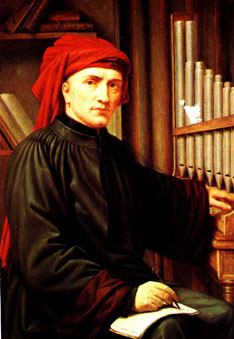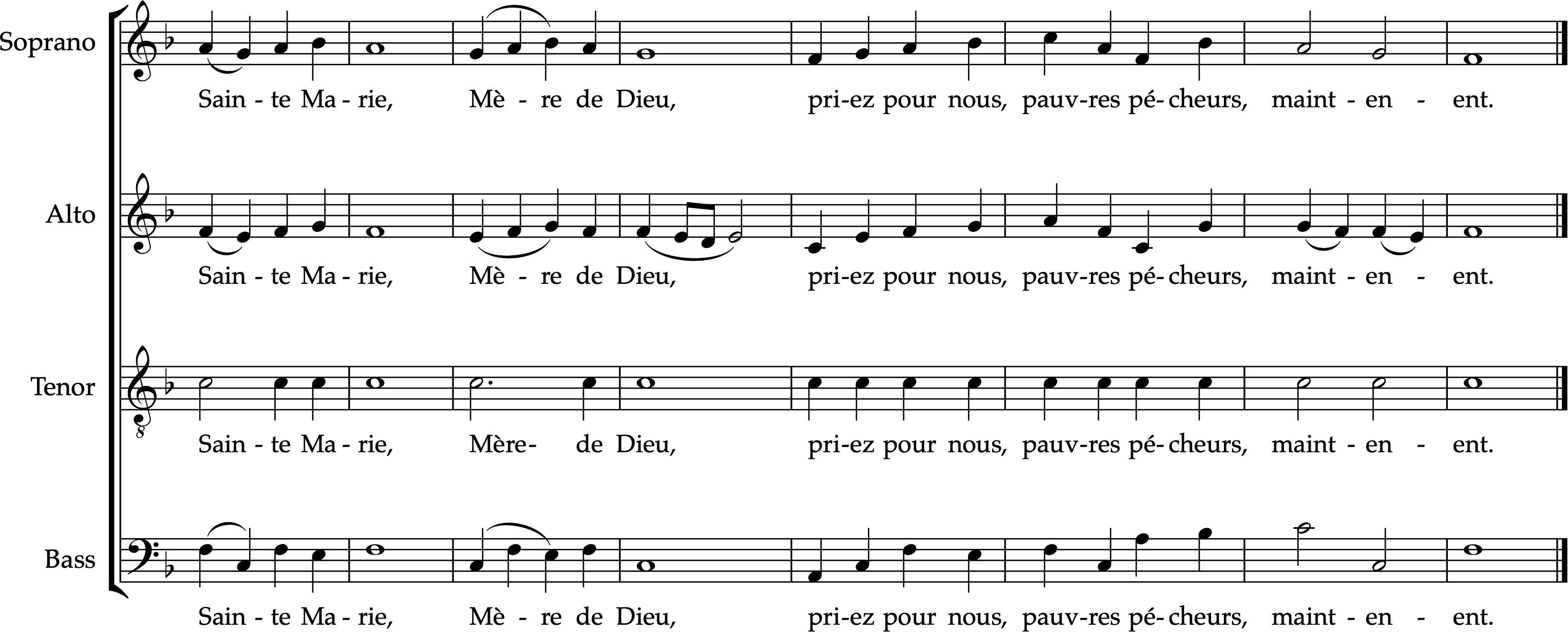Josquin des Prez
The Renaissance
Charles Gustave Housez, CC BY 3.0
[Josquin is] the master of the notes, which must do as he wishes, while other composers must follow what the notes dictate.
The first real master of Renaissance polyphony, Josquin des Prez achieved renown as such even during his lifetime. He is known for his mellifluous polyphonic writing and his work in both sacred and secular music.
Des Prez most likely served as an altar boy and sang in the choir at Cambrai Cathedral in northern France, where Guillaume du Fay had had worked. He may have studeid with Johannes Ockeghem, who himself may have been a student of du Fay; in any case, Josquin continued the tradition of these earlier Franco-Flemish composers. In his twenties, he moved to Aix-en-Provence and sang in the choir of René of Anjou, the father of Margaret of Anjou (Queen Margaret of England, the wife of King Henry VI.) Anjou was seized by King Louis XI and des Prez moved to Paris to work at the royal court.
In 1483, he had moved to Italy and worked for the wealthy Sforza family in Milan, and may have done some work in Vienna for Matthias Corvinus, the King of Hungary. From there, he also visited Rome, where he eventually worked under Pope Innocent VIII and Pope Alexander VI (and may have graffitied his name onto the wall of the Sistine Chapel, where it was discovered in 1998.)
He returned to Milan and then eventually to France, where he worked for King Louis XII. The king grew fond of him, and at one point asked him to write a piece in which the monarch could sing. Knowing the king had no musical talent whatsoever, he drew some inspiration from the drone organum style, writing a quartet in which the tenor remained on a single pitch for the entire work, something like this:

Fortunately, the king was amused and rewarded the clever composer. After his time in Paris, he returned to Italy, moving to the court of Ferrara. Letters sent to the Duke of Ferrara state that Josquin "composes when he wants to and not when one wants him to," and reveals that he was asking for a much higher salary than other candidates. Nevertheless, his reputation as a composer was so great that he did get the job and became the maestro di cappella in Ferrara in 1503; however, plague broke out the following year and Josquin returned to France. He became the music director at a church in Condé-sur-l'Escaut, a position which he held until his death in 1521.
